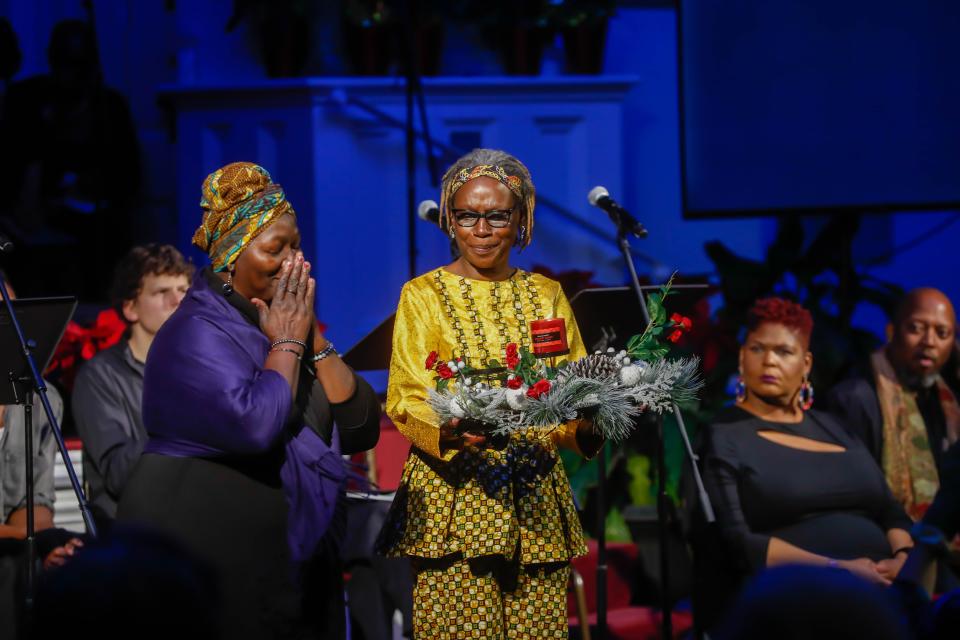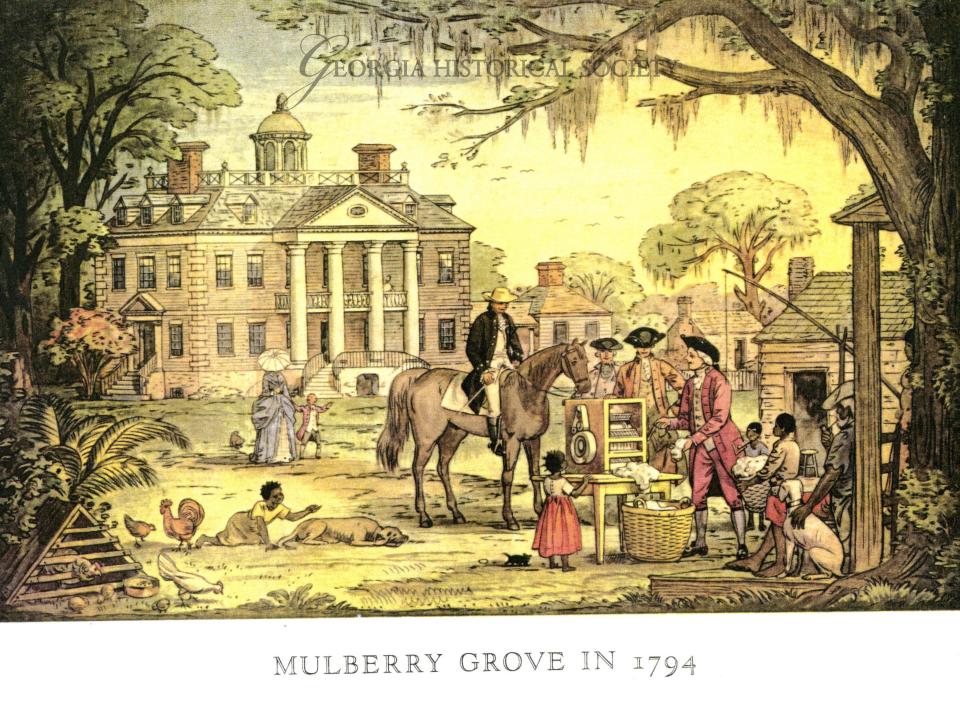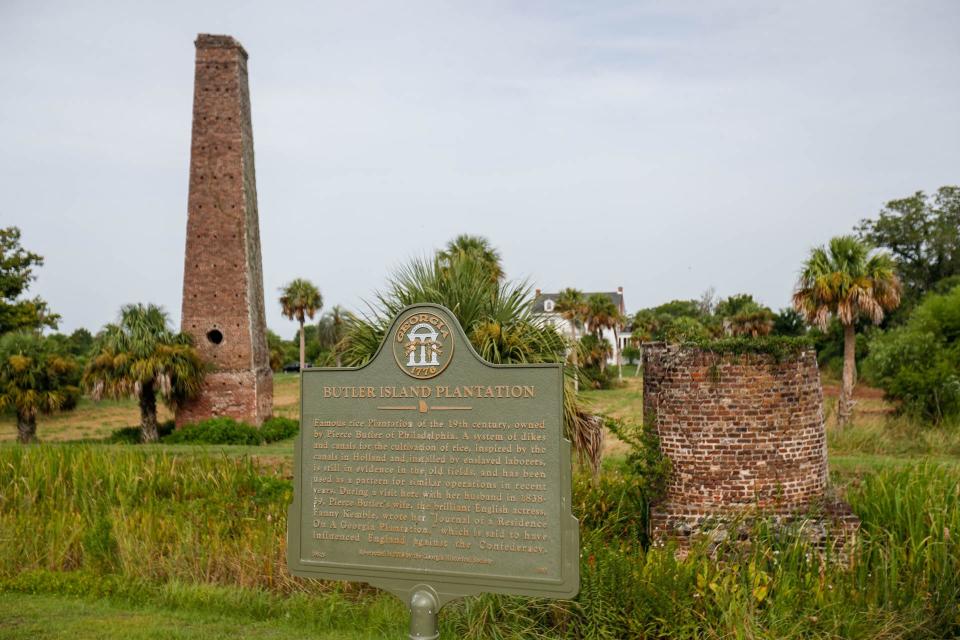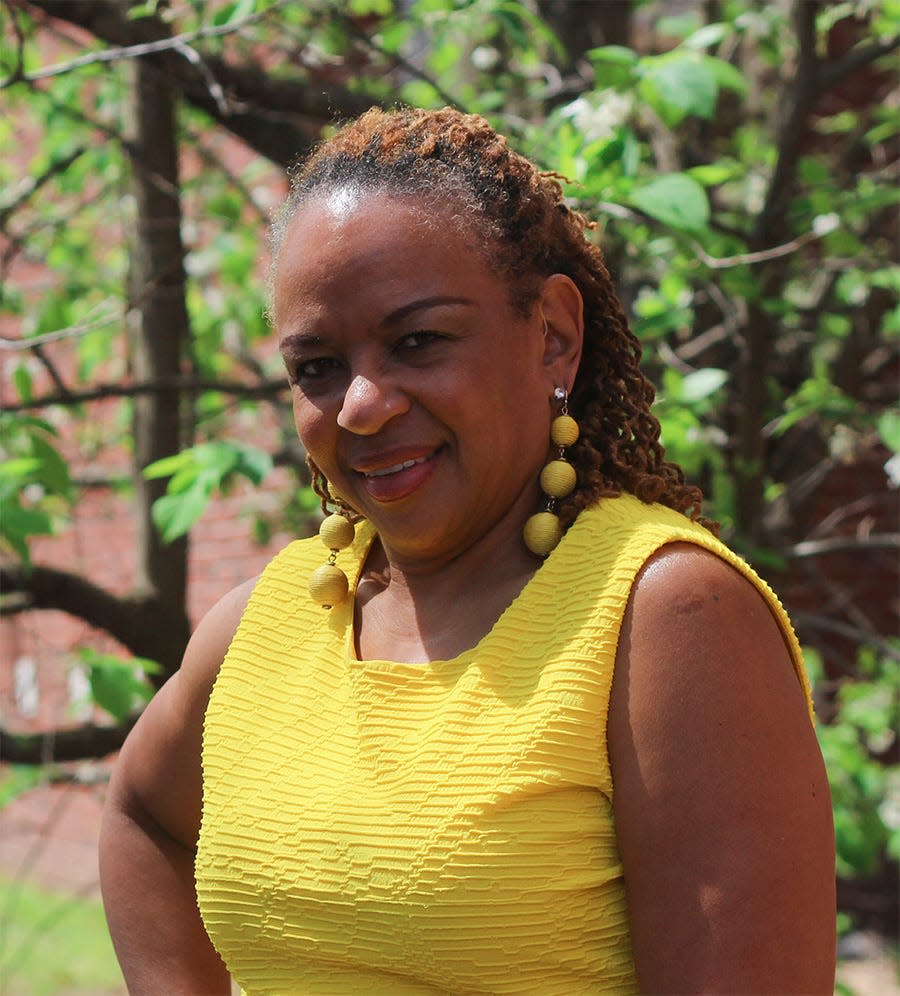Everything must change: It's time to do away with 'plantation' names around Savannah
In 1977, George Benson released a song in his album, "In Flight," that opened with these words: “Everything must change. Nothing stays the same”. Those words rang true then and are even more true now in contemporary times.
From 1989 – 2010, my training and development firm, Bryant Educational Seminars and Training, specialized in culture and diversity training. Initially during that time, the primary issue was race relations between black and white people. In 2010, I moved from diversity focused training and began to accept more criminal justice contracts, since I’d earned a both a bachelor and master’s degree in criminal justice. By then, terms like gender and race equity, inclusiveness and intersectionality were being used and the training and development world began including the growing spectrum of the LBGTQIA+ population in workshops and discussions.
Everything must change. Nothing stays the same.
Recent column from Maxine L. Bryant:Seeking ’justice for all’ means understanding who we are, starting in Savannah
Savannah's got talent!Annual TEDx Savannah displays wealth of knowledge flowing in Hostess City
Maxine L. Bryant:We need to stop 'polaroiding' our Black youth with records. Let's give them a path to dream
In 2021, following our country’s reckoning with the senseless murder of George Floyd, scientists, lawmakers, civil rights advocates and U.S. citizens throughout the country began to reassess the naming of geographic areas, schools, streets, bridges, etc. There seemed to be an urgent call to address evidence of systemic racism in every arena: music, sports, museums, monuments, industrial, localities, parks etc.
Even the discipline of science recognizes that names matter. Earyn McGee, a Black scientist who studies lizards is advocating a name change for the term used in her field for the process of catching lizards. The current term is noosing. For her, and many others, that term calls to mind the horrific lynchings of Black people during the 18th and 19th centuries. McGee says a better term is lossoning, which more accurately describes how lizards are caught.
Everything must change. Nothing stays the same.

In 2020, local community activist Patt Gunn began leading efforts to rename Calhoun Square. This square was named after former Vice President John C. Calhoun, who owned enslaved Blacks. Having a Square in downtown Savannah named after a man who owned Black slaves is an affront to the thousands of Black people in Savannah and to many people who visit our city.
In 2022, Savannah City Council unanimously voted to rename Calhoun Square. Everything must change. Nothing stays the same.
In 2022, the U.S. Department of Interior announced that nearly 650 geographic features using the word "squaw" would be given new names. Across the country, individual states began to take a look at offensive names for buildings, communities, etc., and made decisions to erase those names and replace them with names that represented unity and inclusiveness and equity. Everything must change. Nothing stays the same.
More:Savannah Council takes up Calhoun Square renaming. For activists, the fight dates back years
With the federal government recognizing the need to remove derogatory and offensive names from national parks and localities; with major league sports organizations making decisions to change names and mascots that demean a people; with academia renaming buildings to create a more equitable environment for students, and with cities renaming bridges and parks to cease giving honor to racist people, why is it that communities throughout the lowcountry in Charleston and Savannah continue to use the term ‘plantation’ for residential areas?
What can be learned from science, sports, academia, the feds, and state and local governments is that terminology matters. Everything must change. Nothing stays the same.

Local "plantation" names need to be retired, also
When you hear or read the word “plantation," what image comes to your mind?
Most people envision a large house surrounded by acres of land with crops cultivated by enslaved Black people. According to National Geographic, the term plantation came about as settlements in the southern US came to be rooted around the production of agriculture. Plantations became the center of large-scale enslaved labor operations.
More:State's oldest plantation subsumed by industry. How do we honor its conflicted history?
National Geographic continues to describe the plantation system as one characterized by social and political inequity. The article posits plantations with the agricultural prosperity of the South and the exploitation of slave labor.
The word plantation originated in classical Latin and meant “to propagate from cuttings” — or to begin new plants from a parent plant. In medieval Latin, the word plantation came to mean something that had been planted – a plant, a foundation, an institution, a nursery, or a colony. When the word plantation made its appearance in English in the early 1400s, it had two meanings – the establishment of an institution or colony or the planting of a seed or its shoot in soil.

Colonies in North America used the term to denote “a settlement in a conquered or dominated country; a colony”. It also referred to “an estate or large farm on which crops such as cotton, sugar, and tobacco are grown with the aid of slave labor." An extension of that meaning was developed in the 1950s: “any institution regarded as exploitative or paternalistic, especially in fostering an environment of inequality and servitude reminiscent of slavery”. No doubt proponents of naming communities plantations would argue that the term is merely synonymous with a farm or horticultural area. However, the authors of the “Grammarphobia Blog” have concluded, “Considering all the evidence…we believe that more Americans associate the word “plantation” with its slave past than with its purely horticultural meaning.”
With such a negative connotation, the question that begs to be answered is why the term “plantation” is used with some frequency in the names of contemporary subdivisions and apartment communities?
Maxine L. Bryant:We must continue the lead of others and teach Africa's Story to those in Savannah and beyond
In Savannah and surrounding areas, some of those communities include Lebanon Plantation, Berwick Plantation, Live Oak Plantation, Wild Horn Plantation Apartments and Plantation Oaks Apartments. In fact, there are no less than 15 communities within Chatham County that include “Plantation” as part of their name. One very interesting locality is the Ford Plantation in Richmond Hill that boasts of being a high-end community with homes built in “typically plantation style” that range from as low as $575,000 in value to over $4 million.
![The Ford Plantation in Richmond Hill. [FILE PHOTO]](https://s.yimg.com/ny/api/res/1.2/3FcCAqv7eaxrfXZeUQ8iTA--/YXBwaWQ9aGlnaGxhbmRlcjt3PTk2MDtoPTU3Nw--/https://media.zenfs.com/en/savannah-morning-news/8a651ab8c4469663d58056f20348475a)
Since the term “plantation” is connected to this country’s love affair with slavery, how did it become ok to associate the term with residential subdivisions and communities? The word is synonymous with racism, degradation and the exploitation of Black people. The term plantation is reminiscent of white supremacy; yet developers in urban areas and on the Sea Islands that once housed enslaved Black people continue to construct residential housing and name those communities "plantations."
With that said, the question remains: why do builders and community developers continue to attach the word “plantation” to contemporary communities? Terms matter. Names matter. Supporters of diversity, equity, and inclusion agree that it’s time for that to change. It’s time to rename those communities.
Everything must change. Nothing stays the same.
Maxine L. Bryant, Ph.D., is a contributing lifestyles columnist. She is an assistant professor, Department of Criminal Justice & Criminology; director, Center for Africana Studies, and director, Gullah Geechee Cultural Heritage Center at Georgia Southern University, Armstrong Campus. Contact her at 912-344-3602 or email dr.maxinebryant@gmail.com. See more columns by her at SavannahNow.com/lifestyle/.

This article originally appeared on Savannah Morning News: Savannah GA history: Plantation names still abundant in the area

